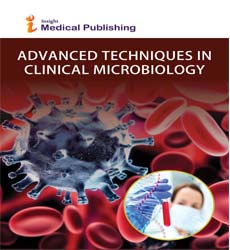Camel milk; a unique superfood for health complications and cardiovascular challenges
Abstract
Camel milk is considered as a superfood with medicinal values. Currently, consumers' interest in camel milk has been increased due to its health benefits. Camel milk is rich in vitamins C, Mn, iron, Cu and Zn rather than cow milk. It is a suitable substitute for human milk in kids with allergy to cow milk due to lack of β-lactoglobulin and low β-casein as allergic proteins. Camel milk has high amount of immunoglobulin’s, insulin like protein and protective enzymes like lactoferrin, peptidoglycan recognition protein, lactoperoxidase and lysozyme. Furthermore, lactic acid bacteria of camel milk as strong probiotic are important for the gut health and function. Smaller size of nanobodies of camel milk prevent food allergy and enhance the immune system and inflammations. Camel milk is effective on cholesterol content and cardiovascular diseases. Probiotic bacteria of camel milk may interfere with cholesterol absorption from the intestine by de conjugating bile salts and preventing reabsorption. Hypocholesterolemic peptides have been result in cholesterol reduction by binding to cholesterol or reducing the micellar solubility of cholesterol and inhibiting cholesterol absorption. The presence of orotic acid produced from the nucleic acid metabolism is responsible for the lowering of cholesterol amount. Casein hydrolysates produced by Bb12 culture or trypsin significantly reduced cholesterol levels by 24–87%. The decrease in cholesterol levels may also be due to the direct interaction of the side chain of arginine and tyrosine amino acids with the cholesterol and the formation of the apoprotein-cholesterol complex, which is dependent on the amount of arginine. Fermented camel milk has inhibitory peptides of angiotensin I-converting enzyme (ACE) which produced by proteolytic digestion of casein and whey protein that regulate blood pressure. The administration of camel milk for 45 days significantly decreased hyperlipidemia; total cholesterol, triacylglycerol’s, free fatty acid, LDL, and VLDL, and improved HDL content. Lactoferrin, immunoglobulins and antioxidants of camel milk led to improve cardiovascular challenge in type 1 and 2 diabetes. Using of camel milk for 6 months reduced LDL and triacylglycerol’s in type 1 diabetic cases.
Reduction of 1% in cholesterol reduces the risk of cardiovascular diseases by 2–3%. Therefore, camel milk is not only food, but also it is recommended as miraculous superfood for heart health and cardiovascular disorders.
Key words: Camel milk, health, cardiovascular disease
Open Access Journals
- Aquaculture & Veterinary Science
- Chemistry & Chemical Sciences
- Clinical Sciences
- Engineering
- General Science
- Genetics & Molecular Biology
- Health Care & Nursing
- Immunology & Microbiology
- Materials Science
- Mathematics & Physics
- Medical Sciences
- Neurology & Psychiatry
- Oncology & Cancer Science
- Pharmaceutical Sciences
